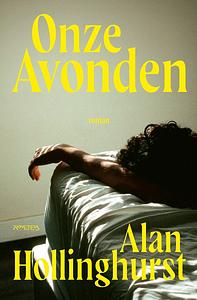You need to sign in or sign up before continuing.
Take a photo of a barcode or cover
emotional
mysterious
reflective
sad
medium-paced
Plot or Character Driven:
Character
Strong character development:
Yes
Loveable characters:
Complicated
Diverse cast of characters:
N/A
Flaws of characters a main focus:
Yes
This was a WORDY one. I found myself skimming through it, but nonetheless finished it. Gorgeous writing but definitely not for everyone.
emotional
hopeful
inspiring
reflective
relaxing
medium-paced
Plot or Character Driven:
Character
Strong character development:
Yes
Loveable characters:
Yes
Diverse cast of characters:
Yes
Flaws of characters a main focus:
No
dark
emotional
funny
reflective
sad
slow-paced
Plot or Character Driven:
A mix
Strong character development:
Yes
Loveable characters:
Complicated
Diverse cast of characters:
Yes
Flaws of characters a main focus:
No
As this is the first time I've heard of Hollinghurst, I imagine this books hits differently for those who have read his other books with similar character types and topics, and also probably resonates so much more for UK readers.
In this book, which slowly builds up a life and times, I can't remember ever feeling so clearly that England is a foreign country, even though I've read so many of their authors, seen so many movies and TV shows, etc. Maybe it's due to the feeling of actual life instead of created plot and characters.
A fictional narrator writes his memoir, and it feels like what anyone writing a memoir wishes they could produce, if only they were capable of writing sustained literary fiction. Starting in the 60s, it captures that feeling. I'm still not sure why he had to make his narrator half Burmese, although by the end of the book you understand the choice to make him part Asian.
In this book, which slowly builds up a life and times, I can't remember ever feeling so clearly that England is a foreign country, even though I've read so many of their authors, seen so many movies and TV shows, etc. Maybe it's due to the feeling of actual life instead of created plot and characters.
A fictional narrator writes his memoir, and it feels like what anyone writing a memoir wishes they could produce, if only they were capable of writing sustained literary fiction. Starting in the 60s, it captures that feeling. I'm still not sure why he had to make his narrator half Burmese, although by the end of the book you understand the choice to make him part Asian.
reflective
slow-paced
dark
emotional
reflective
medium-paced
Top flight Hollinghurst—if it’s your thing it’s your thing, if it isn’t, this won’t change your mind. For whatever reason the topical turn to hate crimes at the end bugged me way less than the similarly manipulative turn at the end of Brooks’s Horse, perhaps bc David always felt like a character rather than a way to Make a Point about Racism, or maybe the overall elegiac tone lent itself to that kind of thing. But a surprising stunner at the end, and time to share all of our grief at how the bullies keep winning, our knowledge of their foibles, hypocrisies, and insecurities cold comfort.
reflective
slow-paced
informative
reflective
medium-paced
Plot or Character Driven:
Character
Strong character development:
No
Loveable characters:
No
Diverse cast of characters:
Yes
Flaws of characters a main focus:
Yes
Sensim Sine Sensu
Oh, well it’s Cicero, isn’t it…De Senectute. I suppose, sort of… “slowly, without sensing it, we grow old.” from Our Evenings by Alan Hollinghurst
Our Evenings was a lovely read that reminded me of Brideshead Revisited by Evelyn Waugh with its bittersweet nostalgia of remembering one’s youth and those one loved, and the importance of place in one’s emotional life.
The novel begins with the death of the man who changed David Win’s life. Mark Hadlow had inherited wealth and set up a scholarship to a private school which was awarded to David, a biracial son to unmarried mother who ran a dressmaking business. David never knew much about his Burmese father.
Fourteen-year-old David vacationed with the Hadlow’s at their country house. Giles Hadlow, the son, was a bully. An aunt was an actress and noted David’s nascent acting talent.
A great deal of the novel follows David’s time at school, then moves on to his career and the men he fell in love with. His race and color limits the roles he can play, although he is described as a beautiful man. All through his life, people ask him ‘where are you from’ and are perplexed when with David’s answer, an undercurrent of racism ever present.
He used to call me a brown faced bastard…Which I am, strictly speaking. from Our Evenings by Alan Hollinghurst
David suffered Giles’ mistreatment at school and while he spent summers with the Hadlows. Giles’ political career brings prominence as an anti-immigrant leader. “He was an absolute shit,” David says years later, “He was a cheat and a bully, and very good at being both.” Giles becomes Minister for the Arts solely based on his family’s support of the arts, so he is ironically present when, late in life, David was Speaker in Vaughan Williams’ “An Oxford Elegy”.
Society’s attitude toward homosexuality is also ever present. When a schoolboy, David reads a poll stating that 93% thought that homosexuality required medical or psychiatric treatment. Past middle age, he found a life partner and they married. David’s mother became involved with a divorcee’ as a business and life partner.
The book’s title came from a piece of music David’s teacher at school had played for him, Janacek’s “Our Evenings”. “Our evenings are rarely our own,” David says, referring to the life of an actor.
After his mother’s death, and then Mark Hadlow’s passing, David realizes the brevity of days ahead of him. He writes his memoir of his life, which is this novel.
The lyricism and emotional attachment to David enchanted me as I read the novel. And at the end, I felt profound loss. Loss of this character, but also from the awareness of the limited evenings personally left to me, how quickly life passes by, how the world alters around us, for the better and the worse. The sundial at the Hadlow’s summer house warned David when he was fourteen, but he did not understand the message until late in life.
Dear reader, perhaps this story can be a warning to us.
Thanks to the publisher for a free book.
Oh, well it’s Cicero, isn’t it…De Senectute. I suppose, sort of… “slowly, without sensing it, we grow old.” from Our Evenings by Alan Hollinghurst
Our Evenings was a lovely read that reminded me of Brideshead Revisited by Evelyn Waugh with its bittersweet nostalgia of remembering one’s youth and those one loved, and the importance of place in one’s emotional life.
The novel begins with the death of the man who changed David Win’s life. Mark Hadlow had inherited wealth and set up a scholarship to a private school which was awarded to David, a biracial son to unmarried mother who ran a dressmaking business. David never knew much about his Burmese father.
Fourteen-year-old David vacationed with the Hadlow’s at their country house. Giles Hadlow, the son, was a bully. An aunt was an actress and noted David’s nascent acting talent.
A great deal of the novel follows David’s time at school, then moves on to his career and the men he fell in love with. His race and color limits the roles he can play, although he is described as a beautiful man. All through his life, people ask him ‘where are you from’ and are perplexed when with David’s answer, an undercurrent of racism ever present.
He used to call me a brown faced bastard…Which I am, strictly speaking. from Our Evenings by Alan Hollinghurst
David suffered Giles’ mistreatment at school and while he spent summers with the Hadlows. Giles’ political career brings prominence as an anti-immigrant leader. “He was an absolute shit,” David says years later, “He was a cheat and a bully, and very good at being both.” Giles becomes Minister for the Arts solely based on his family’s support of the arts, so he is ironically present when, late in life, David was Speaker in Vaughan Williams’ “An Oxford Elegy”.
Society’s attitude toward homosexuality is also ever present. When a schoolboy, David reads a poll stating that 93% thought that homosexuality required medical or psychiatric treatment. Past middle age, he found a life partner and they married. David’s mother became involved with a divorcee’ as a business and life partner.
The book’s title came from a piece of music David’s teacher at school had played for him, Janacek’s “Our Evenings”. “Our evenings are rarely our own,” David says, referring to the life of an actor.
After his mother’s death, and then Mark Hadlow’s passing, David realizes the brevity of days ahead of him. He writes his memoir of his life, which is this novel.
The lyricism and emotional attachment to David enchanted me as I read the novel. And at the end, I felt profound loss. Loss of this character, but also from the awareness of the limited evenings personally left to me, how quickly life passes by, how the world alters around us, for the better and the worse. The sundial at the Hadlow’s summer house warned David when he was fourteen, but he did not understand the message until late in life.
Dear reader, perhaps this story can be a warning to us.
Thanks to the publisher for a free book.
challenging
reflective
slow-paced
Plot or Character Driven:
Character




